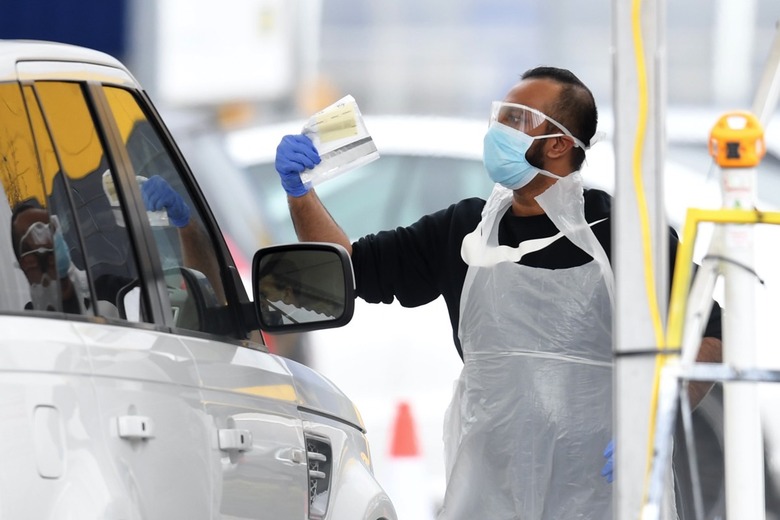Iceland's Early Coronavirus Testing Model Shows 50% Of Cases Have No Symptoms
- Iceland's coronavirus testing campaign stands out as the country started aggressive COVID-19 screening months ago.
- Iceland is testing all patients who are at risk or show symptoms, and anyone else who wants to get tested.
- Current data shows that around 50% of those tested didn't have symptoms indicative of infection with the novel coronavirus.
- Visit BGR's homepage for more stories.
A small island nation of 360,000 inhabitants, Iceland may prove to be a beacon of hope in fighting the novel coronavirus, as well as future viral outbreaks before they reach pandemic levels. The country has made the news a few times in the past few days for its COVID-19 work. Iceland is home to scientists that are at the forefront of genetic innovation, as they've been tracing the few mutations of the SARS-CoV-2 pathogen. That data will be useful for bringing the COVID-19 vaccines that are currently in development around the world to market.
Studying the genetics of the virus wouldn't be possible without an extensive COVID-19 testing campaign, and that's where Iceland's approach stands out. The country started testing well before the disease overwhelmed its medical system, and it discovered that around 50% of cases had no symptoms. The early testing campaign also had another side effect on the community, as Iceland didn't have to impose as strict lockdown measures as other countries.
With 1,364 cases so far, including four deaths, Iceland has an average of 3,745 COVID-19 patients per million. Comparatively, America's 256,000 cases account for an average of 784 cases per million at the time of this writing. The difference between Iceland and other countries is that testing started much earlier.
Testing started in early February, weeks before its first coronavirus death, deCODE founder Dr. Kári Stefánsson told CNN. Additionally, officials have conducted an aggressive contact-tracing campaign aiming to quarantine all suspected COVID-19 cases.
"The only reason that we are doing better is that we were even more vigilant," Stefánsson said. "We took seriously the news of an epidemic starting in China. We didn't shrug our shoulders and say, 'this is not going to be anything remarkable.'"
Iceland's COVID-19 statistics show that some 1,024 people are in isolation, 45 are hospitalized, and 12 people are in the ICU. More than 10,200 suspected contacts have completed the quarantine, while 6,300 more are in quarantine as of this writing. In total, Iceland tested more than 22,000 people and aims to test 50,000 more. The National University Hospital examines people who are high-risk or have shown symptoms, CNN explains. But nearly half of testing has been done by deCODE, and anyone who wants to get tested can be.
While fewer than 1% of the tests the biotech company performed came back positive, around 50% of those who tested positive were asymptomatic. This finding supports other studies that say presymptomatic, asymptomatic, and those that are mildly symptomatic are active carriers of the virus, helping it spread.
"What it means in my mind, is that because we are screening the general population, we are catching people early in the infection before they start showing symptoms," Stefánsson said.
The data also indicates that the more than 1,050,000 confirmed cases globally do not paint a complete picture. There may be hundreds of thousands of infected people who can't be tested because there aren't enough tests or because they don't qualify.
Some might find Iceland's success easy to dismiss, given the size of the country. But the protocols the country put in place can apply to any community. Early testing and contact-tracing could flatten the curve before social distancing measures need to be deployed. Iceland has limited gatherings over 20 people, but the country isn't under lockdown.
"It's nothing to do with the size of the population, this has to do with how well prepared it was," Stefánsson said, adding that many developed countries could have mounted similar efforts, but "behaved like nothing was happening."
Iceland isn't the only country using testing to attempt to stay ahead of the illness. South Korea has been able to drastically flatten the curve by COVID-19 screening and drastic contact tracing campaigns. Germany's aggressive testing allowed it to register 85,000 cases, or around 1,033 cases per million. But Germany caught these cases early on, which helped it reduce the mortality rate significantly compared to other EU states.
